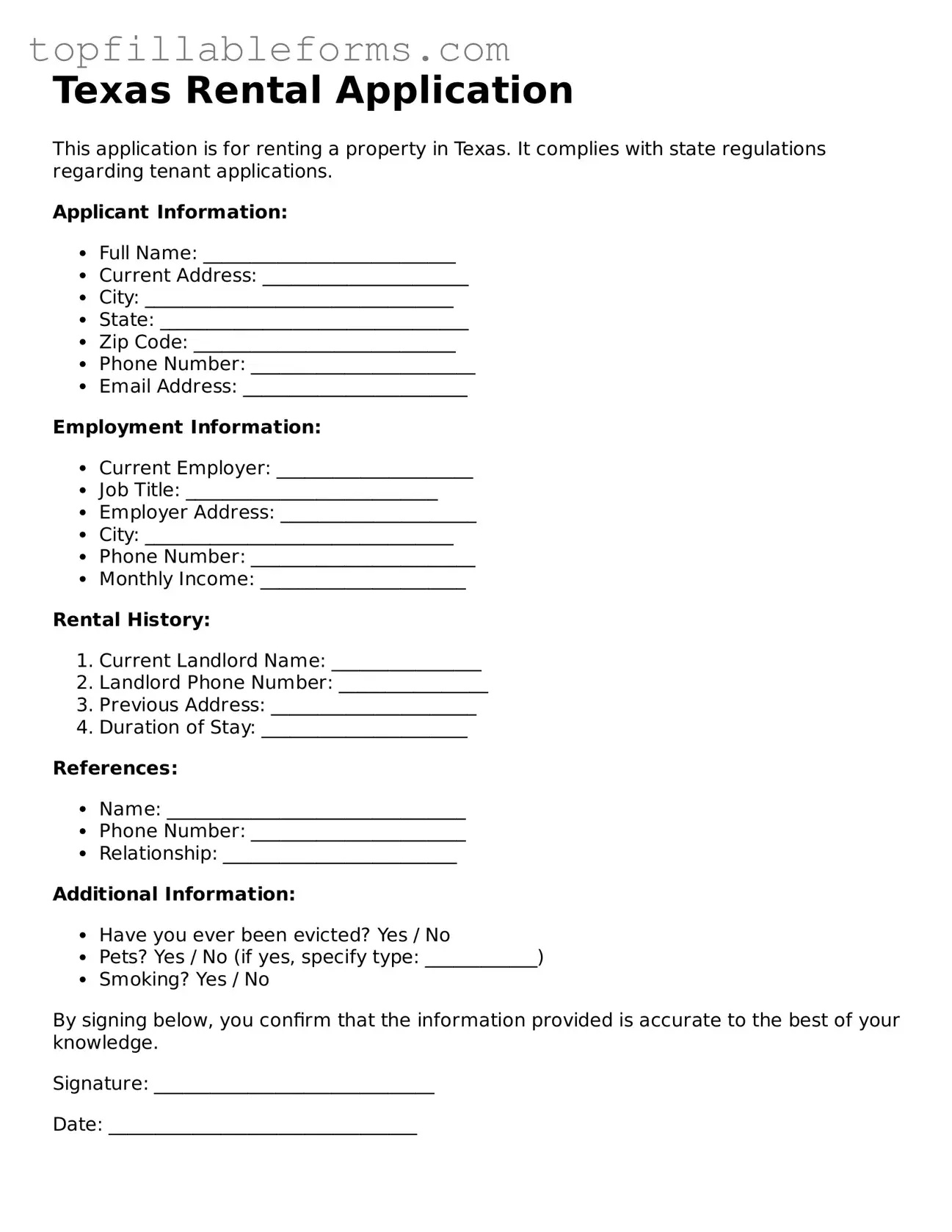Attorney-Verified Rental Application Template for Texas
The Texas Rental Application form is a document used by landlords to collect essential information from potential tenants. This form helps landlords evaluate applicants based on their rental history, creditworthiness, and overall suitability for tenancy. Understanding this form is crucial for both landlords and tenants to ensure a smooth rental process.
Open Rental Application Editor Here

Attorney-Verified Rental Application Template for Texas
Open Rental Application Editor Here
Finish the form now and be done
Finish your Rental Application online by editing, saving, and downloading fast.
Open Rental Application Editor Here
or
▼ PDF File
